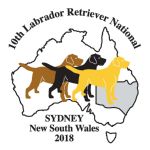Obedience
|
Obedience Competition (Trialling) |
|
The idea of Obedience Trials is to demonstrate the usefulness of the dog as the companion and guardian of man and not the ability of the dog to acquire facility in the performance of mere tricks. The classification which has been adopted is progressive with the thought in mind that a dog which has been granted the title of OBEDIENCECHAMPION has demonstrated its fitness for a place in our modern scheme of living. (extract above taken from the ANKC Rules and Exercises for Obedience Trials) |
|
Community Companion Dog (C.C.D.) This is the basic level of competition and is not a compulsory section. The exercises are:
Three passes of a minimum 85 points out of a possible 100 points under at least two different judges will qualify the dog for the award Community Companion Dog, which follows after the dog's name and is normally abbreviated to C.C.D.
Novice (C.D.) Obedience trialling at the Novice level consists of the performance of a number of exercises in a formal ring situation. These exercises are:
Three passes of a minimum of 170 points out of a possible 200 under at least two different judges will qualify the dog for the award Companion Dog, which follows after the dog's name and is normally abbreviated to C.D.
Open (C.D.X.) Obedience trialling at the Open level is of a higher standard than Novice, and introduces jumping, and stays in which the handler is out of sight. The formal exercises are:
Three passes of a minimum of 170 points out of a possible 200 under at least two different judges will qualify the dog for the award Companion Dog Excellent, which follows after the dog's name and is normally abbreviated to C.D.X.
Utility (U.D.) Obedience trialling at the Utility level is of the highest standard in Obedience trialling. It introduces scent work, and demands a high level of training and understanding between dog and handler. The formal exercises are:
Three passes of a minimum of 170 points out of a possible 200 under at least two different judges will qualify the dog for the award Utility Dog, which follows after the dog's name and is normally abbreviated to U.D.
Utility Dog Excellent (U.D.X.) The exercises at this level extend on those in the Utility section. The exercises are:
Three passes of a minimum of 170 points out of a possible 200 under at least two different judges will qualify the dog for the award Utility Dog Excellent, which follows after the dog's name and is normally abbreviated to U.D.X.
For more information Contact Dogs NSW for your local obedience club , or if you would like to know more about the rules for the conduct of Obedience Trials http://www.ankc.org.au/Rules.aspx |
